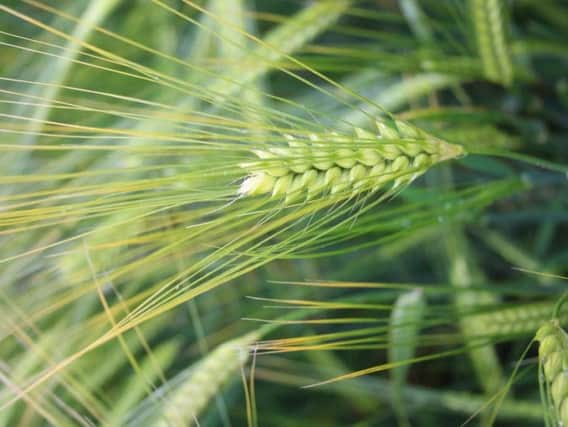Why Scottish businesses need to adapt to battle climate change


This could be making changes to our buildings so they keep cool during hotter summers or become less at risk of being flooded. It could be using scarce water resources more efficiently, or making changes to the crops we grow or trees we plant in our forests, so they are less vulnerable to pests or to storms or wild fires. This is called adaptation – and as Scotland’s climate changes – the urgency to adapt also grows.
Find out more about the VIBES awards at www.vibes.org.uk“Over the last century, temperatures have increased, sea levels have risen and rainfall patterns have changed, with more heavy downpours,” says Anna Beswick from Adaptation Scotland, a programme funded by the Scottish Government to provide advice and support to help organisations, businesses and communities prepare for – and build resilience
to – these impacts.
“Climate changes are already impacting people and places across Scotland. Taking early action to adapt will help increase resilience and reduce risks. The Climate Change (Scotland) Act also places a legal duty on many organisations to adapt.”
Last year, Adaptation Scotland sponsored the first Climate Change Adaptation Award at the VIBES – Scottish Environment Business Awards.
The awards, which are celebrating their 20th anniversary this year, have recognised more than 150 businesses in Scotland that are taking significant steps to improve or reduce their impact on the environment, typically making significant financial savings in the process.
International Barley hub
The Dundee-based James Hutton Institute, which provides world-class scientific research tackling some of the world’s biggest challenges relating to food and environmental security and sustainable development, won the 2018 VIBES Adaptation Award for its leading role in developing the International Barley Hub.
This project seeks to understand the impact of climate change on barley crops and develop a resilient and sustainable barley supply for the future uses in Scotland.
“Barley is Scotland’s most valuable cereal crop with a number of industries reliant on barley production,” explains Professor Colin Campbell, chief executive of the James Hutton Institute. “Scotland currently doesn’t have enough barley grown in the country to meet the demand and, given climate change, it’s important to increase the resilience of this crop now and in the future.
“The VIBES judges were impressed that the International Barley Hub brings together the entire barley supply chain, with currently 135 stakeholders and 40 partners involved, including brewers, distillers and farmers.”
Also among those recognised last year was Aberdeen City Council’s Countryside Ranger Service, which picked up an Adaptation Scotland’s VIBES commendation award. The service manages some 28 countryside sites, which promote nature conservation, recreation and education for all, and it has developed a series of outstanding partnership projects that deliver adaptation benefits.
These include the planting of about 100 hectares of new native woodland in the urban areas of Aberdeen, the East Tullos Burn Restoration Project and the development of a wetland area within Seaton Park, one of the city’s major parks.
